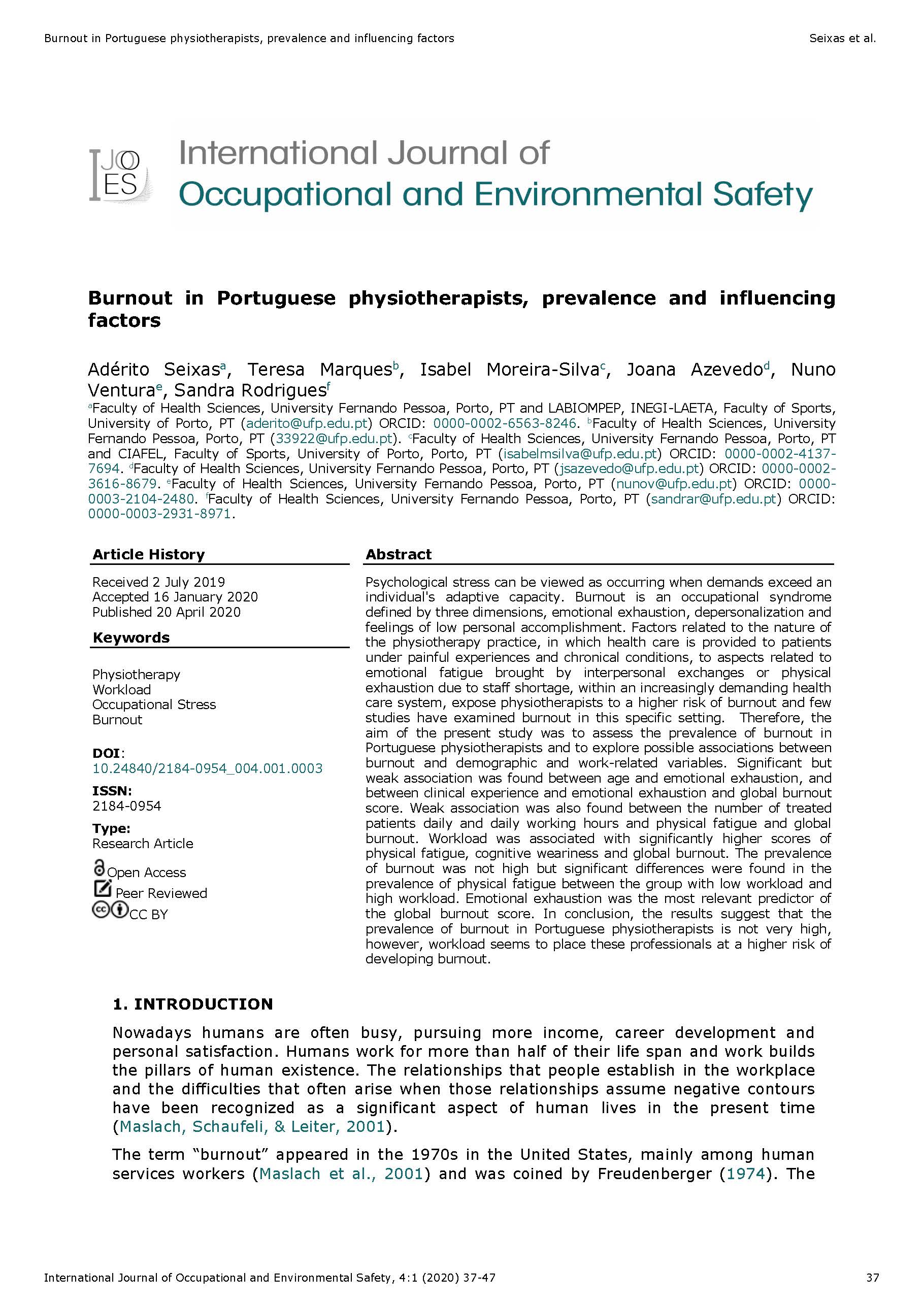Burnout in Portuguese physiotherapists, prevalence and influencing factors
Main Article Content
Abstract
Psychological stress can be viewed as occurring when demands exceed an individual's adaptive capacity. Burnout is an occupational syndrome defined by three dimensions, emotional exhaustion, depersonalization and feelings of low personal accomplishment. Factors related to the nature of the physiotherapy practice, in which health care is provided to patients under painful experiences and chronical conditions, to aspects related to emotional fatigue brought by interpersonal exchanges or physical exhaustion due to staff shortage, within an increasingly demanding health care system, expose physiotherapists to a higher risk of burnout and few studies have examined burnout in this specific setting. Therefore, the aim of the present study was to assess the prevalence of burnout in Portuguese physiotherapists and to explore possible associations between burnout and demographic and work-related variables. Significant but weak association was found between age and emotional exhaustion, and between clinical experience and emotional exhaustion and global burnout score. Weak association was also found between the number of treated patients daily and daily working hours and physical fatigue and global burnout. Workload was associated with significantly higher scores of physical fatigue, cognitive weariness and global burnout. The prevalence of burnout was not high but significant differences were found in the prevalence of physical fatigue between the group with low workload and high workload. Emotional exhaustion was the most relevant predictor of the global burnout score. In conclusion, the results suggest that the prevalence of burnout in Portuguese physiotherapists is not very high, however, workload seems to place these professionals at a higher risk of developing burnout.

